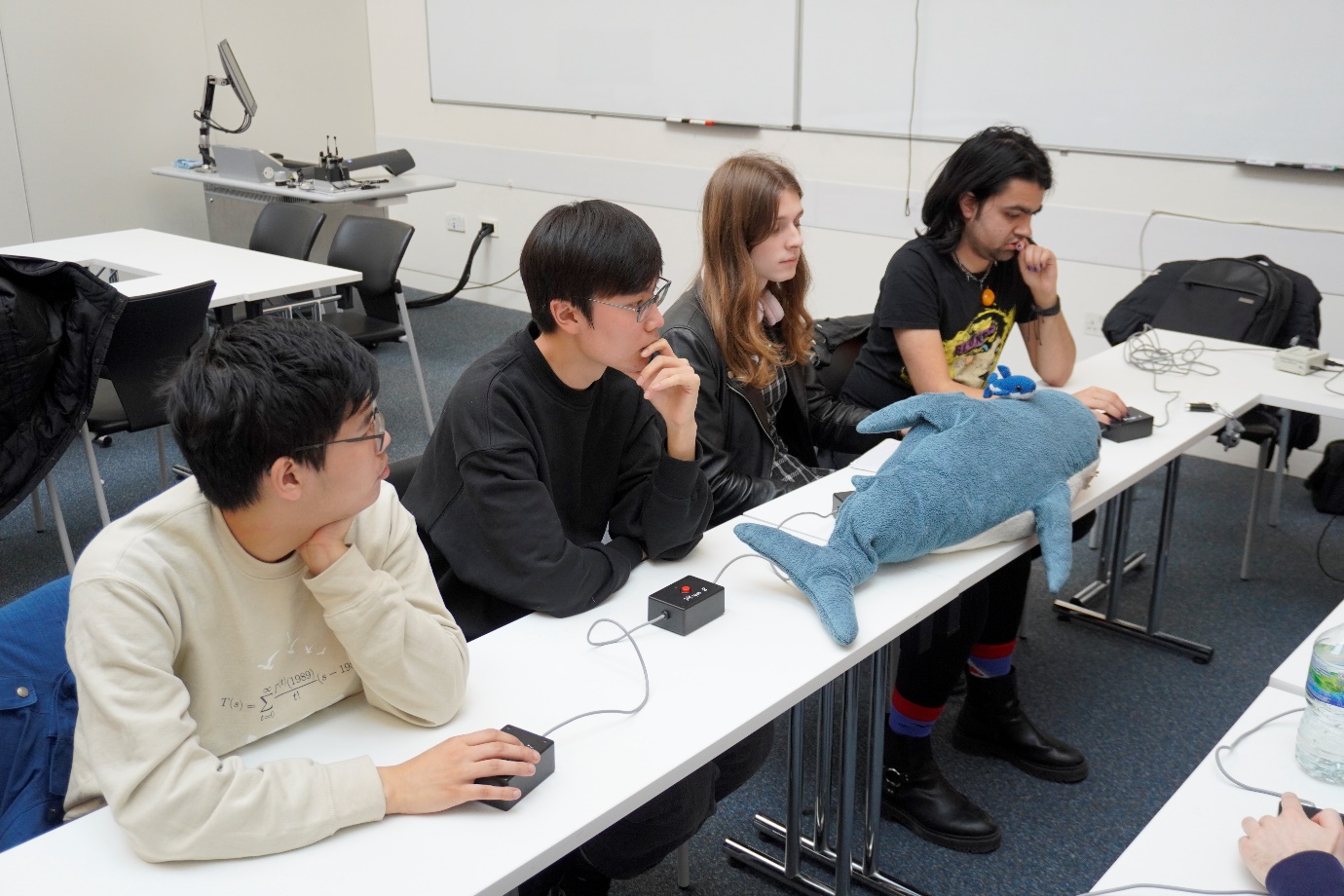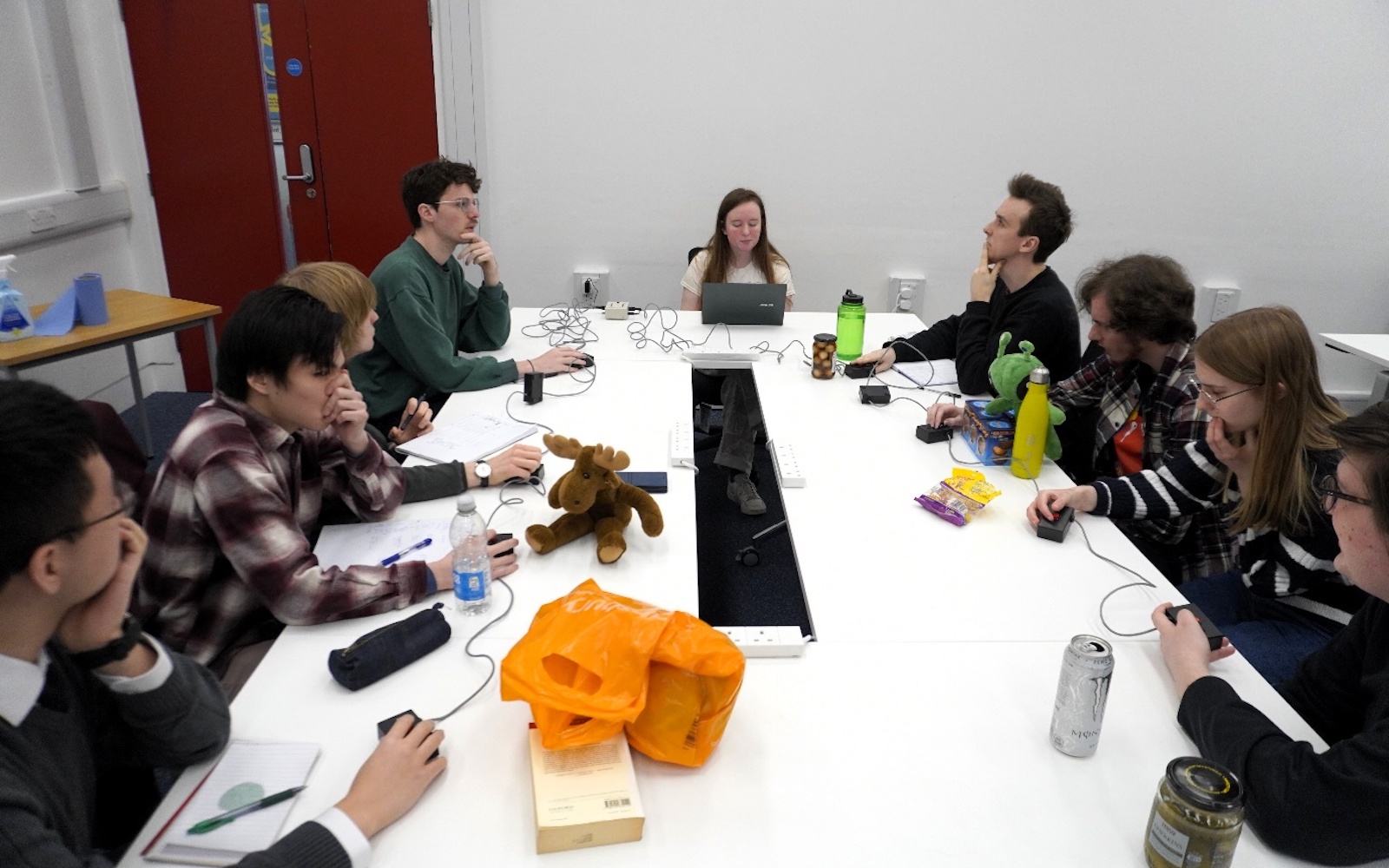The 2024 ACF Regionals were held on Saturday, 27 January with an impressive 16 teams making their way to Imperial College’s Royal School of Mines to compete in perhaps the hardest student-only tournament being run in the UK this year. With many experienced and up-and-coming players taking part, this was set to be one of the main quizbowl events of 2024.
Going into the tournament, we could identify many contenders to win. There was the now-familiar Imperial A team, with the same four players who swept last year’s Regionals and won every student tournament they competed in that year. Evidently their success has inspired other universities to try to stick to the same players whenever possible, as both the Durham A and Edinburgh lineups were unchanged from ACF Winter back in November, where they had met in the final. Oxford were also sticking to what they knew, with only one different player to last year’s runner-up team. Only Cambridge were willing to experiment, trialling a new team that they hope to send back to Imperial for the British Student Quiz Championships coming soon.
However, there were many other teams that caught our eye—a one-man Kiel team promised to be something of a wildcard, having put up impressive performances against full teams in other tournaments. Oxford B and Warwick were each strong contenders for the title of undergraduate champions, out of the six fully undergraduate teams taking part. Many of the B and C teams fielded players who had impressed at novice tournaments, who were now trying their hand at harder questions. Due to the large size of the field, the teams were split into two preliminary brackets of eight, with the top four and bottom four being seeded into new brackets where they would play a further four games.
 Cambridge C continued the tradition of bringing plushies to quizbowl tournaments.
Cambridge C continued the tradition of bringing plushies to quizbowl tournaments.
One bracket was cleared by Oxford A, securing comfortable wins over Edinburgh and their own B team; only Kiel managed to run things somewhat close, coming within 70 points. Imperial B and Cambridge B claimed third and fourth, narrowly kicking Oxford B out of the top bracket. Kiel were down on their luck, narrowly losing to Cambridge C on a protested answer, while King’s College London, making their second appearance at Regionals, would have to wait for the playoffs to get their first taste of victory.
Over in the other bracket, it was looking to be a three-way fight for first between Durham A, Imperial A and Cambridge A, although it did not quite turn out as one would have expected. Imperial A managed a 340–255 win against Durham A in the fourth round, but two rounds later Durham shot back, walloping Cambridge A by a margin of 310 points. At the same time, Warwick were pulling off perhaps the upset of the tournament, when they narrowly triumphed over Imperial A in a particularly chaotic game. Cambridge A then managed a comfortable victory against Imperial A, during which Cambridge film PhD student Harrison Whitaker scored the earliest buzz out of any game at any site of ACF Regionals, correctly identifying Poland as the answer after six words of the tossup.
By the end of the prelims, only Oxford A had kept a clean sheet, while Cambridge A and Durham A led their bracket on a 6-1 win-loss record. Oxford A therefore had the chance to take the win without a final if they won every game, but of course, it rarely happens so smoothly. Cambridge A were taken out of the running thanks to the combined efforts of Oxford and Edinburgh, finishing with an 8-3 record, while Imperial A cleared all four of their remaining matches. Meanwhile in the lower bracket, Sheffield were able to sweep their remaining opponents, having only narrowly missed out on the top bracket, while Bristol and Oxford C scored somewhat unexpected wins over Oxford B.
Imperial’s strong performance in the crossover games put them tied with Oxford A for second place on 9-2 win-loss records, just one loss more than Durham A, who had similarly swept the playoffs. ACF rules dictate that in such a situation, the two second-place teams must play against each other, with the winner then playing the first-place team in a disadvantaged final. In contrast to their earlier encounter, this game was an uncharacteristically severe drubbing for the defending champions, who only managed to score four tossups throughout. Oxford A tore ahead at the start, with solid buzzes on Portuguese colonialism and artificial meats—it took until the ninth tossup for Imperial A to get a word in. Perhaps fatigue had set in, or perhaps it was the pressure of the cameras—this was the first tournament to make use of UK Quizbowl’s new recording equipment. With the finals cores at 400-105 to Oxford A, Imperial A were now out of contention for the title for the first time in over a year.
By this point, the tournament had run late enough that Durham teams ran the risk of not being able to make it home if they played a final. One also cannot fault the Oxford A team for a reluctance to play a thirteenth (and potentially fourteenth) match in one day. Therefore, it was agreed with ACF that the final between Oxford A and Durham A would be played online the following day.
 Durham A and Oxford A, before the start of the final.
Durham A and Oxford A, before the start of the final.
For the final, Durham A had the advantage, meaning that they only needed one win to be declared the champions, whereas Oxford A needed two. Durham A were only 15 points ahead at the end of their previous game, so it was really anybody’s guess as to how their next encounter would go. Things started off well for Durham, sniping the opening tossup on quantum tunnelling. This would only be the first of many times that the lead would be exchanged however, as Durham failed to capitalise on an Oxford neg on a tossup about lutes and were beaten to the subsequent philosophy tossup. Throughout the match however, neither team was able to put much of a gap between themselves and the other team in score—Oxford would be behind, score two tossups in a row, but then lose the lead seconds after when Durham buzzed in, and so on. Going into the final tossup, the game was as tight as it had been at the start, with Oxford leading by the narrowest of margins. Durham were beaten to the buzzer on a question about seismic waves, but then their opponents couldn’t provide a specific enough answer after being prompted—and thus the game slipped away from Oxford right at the last. After the dust settled, Durham A had 265 points to Oxford A’s 245, and with it, the title of tournament champions.
The 2024 ACF Regionals had been much-hyped, and the teams certainly delivered—the day was full of brilliant buzzes, agonisingly close defeats and surprise victories. Having directed this tournament, I’d particularly like to thank to the people who signed up to moderate—some were doing this for the first time, some had signed up last-minute, and most were having to run their rooms solo over the course of 11 rounds, but they nonetheless performed admirably.
Statistics and rankings from the tournament can be viewed here, and detailed statistics about tossups and bonuses can be found here.

